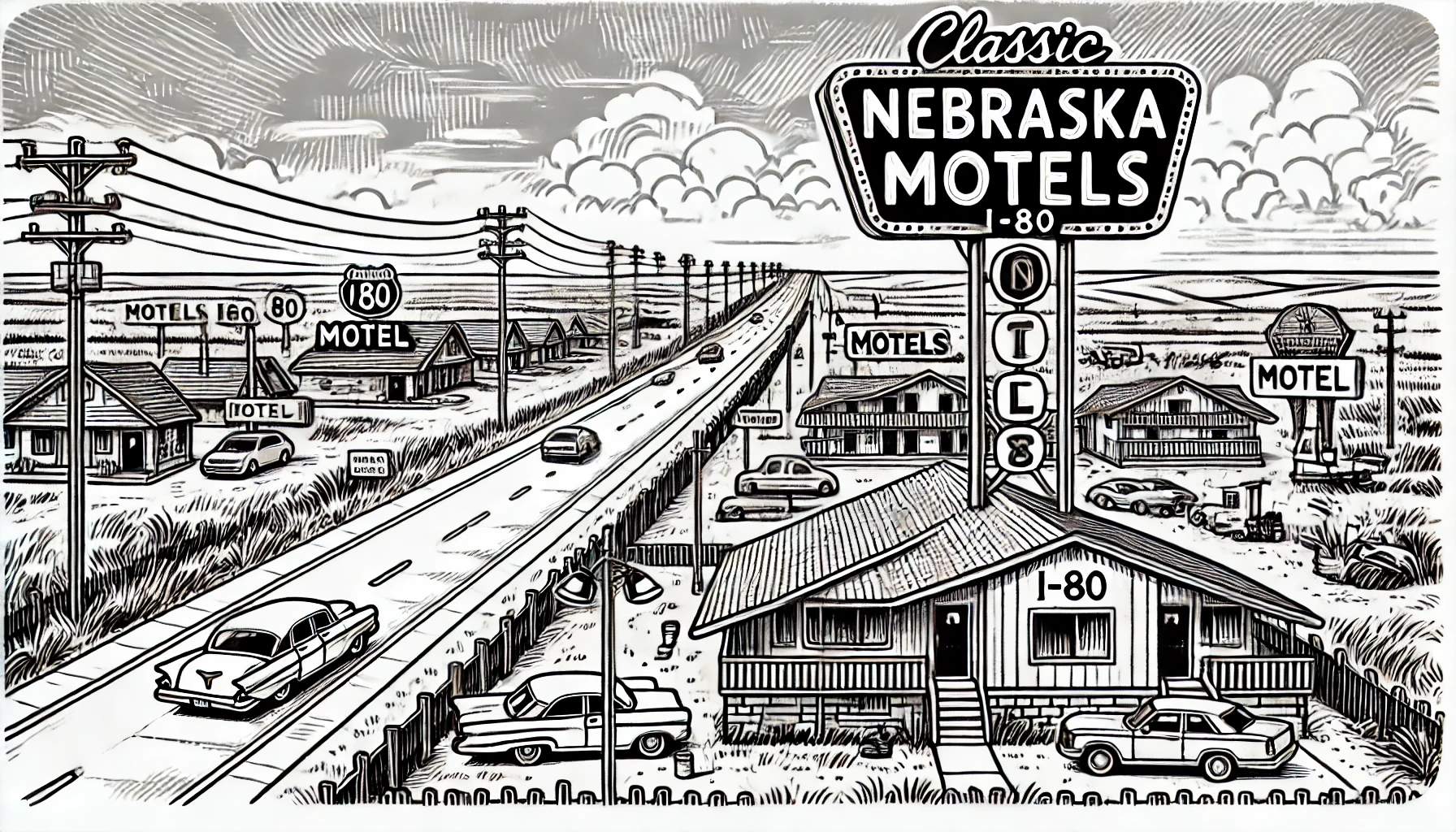Traveling Through Nebraska's Nature and Wildlife Hotspots: Uncovering the Rich History of Rock Creek Station State Historical Park

Located near Fairbury, Nebraska, along the banks of Rock Creek, the Rock Creek Station State Historical Park is a hidden gem that offers a fascinating glimpse into the state's rich natural and cultural heritage. This historic site sits approximately 140 miles southwest of Lincoln, the state capital, and is nestled amidst the gently rolling hills of the Great Plains.
The park is situated on a 364-acre site that encompasses the remains of a famous Pony Express relay station and stagecoach stop, which was established in 1857. During its heyday, the Rock Creek Station was a crucial hub of activity, serving as a vital link between the East and West coasts of the United States. This strategic outpost played host to numerous legendary figures, including Pony Express riders, pioneers, and notable travelers.
One of the park's most significant attractions is the reconstructed Pony Express relay station, which has been painstakingly rebuilt using traditional construction methods and materials. The station features many authentic details, including a replica of the original barn and a fully operational blacksmith shop. Visitors can also explore the restored 1870s-era schoolhouse, which showcases what life was like for the children of the station's inhabitants.
Wildlife enthusiasts will appreciate the park's diverse array of flora and fauna, which thrive in the scenic surroundings of Rock Creek. The park is home to a variety of bird species, including meadowlarks, bobolinks, and dickcissels, which can be spotted in the tallgrass prairies and woodland areas. Visitors can also explore the park's many nature trails, which wind through scenic valleys and wooded hillsides, offering stunning views of the surrounding countryside.
The park also features a museum that showcases a vast collection of artifacts, exhibits, and interpretive displays that provide a detailed history of the Pony Express and stagecoach era. Visitors can view artifacts such as vintage saddles, antique firearms, and historical documents that offer a glimpse into the lives of the people who lived and worked at the station.
In addition to its rich cultural heritage, the park is also notable for its geological features. The area surrounding the park is characterized by a unique landscape of glacial till and loess hills, which were formed during the last ice age. Visitors can explore the park's scenic valleys and hillsides, which offer stunning views of the surrounding countryside.
The park's diverse landscapes and rich cultural heritage make it an ideal destination for outdoor enthusiasts, history buffs, and nature lovers. With its scenic beauty, rich history, and diverse wildlife, Rock Creek Station State Historical Park is a must-visit destination for anyone traveling through Nebraska.
In conclusion, Rock Creek Station State Historical Park is a fascinating destination that offers a unique blend of natural beauty, cultural heritage, and historical significance. Whether you're interested in exploring the park's scenic landscapes, learning about the Pony Express era, or simply experiencing the beauty of the Great Plains, this park is a must-visit destination for anyone traveling through Nebraska.
The park is situated on a 364-acre site that encompasses the remains of a famous Pony Express relay station and stagecoach stop, which was established in 1857. During its heyday, the Rock Creek Station was a crucial hub of activity, serving as a vital link between the East and West coasts of the United States. This strategic outpost played host to numerous legendary figures, including Pony Express riders, pioneers, and notable travelers.
One of the park's most significant attractions is the reconstructed Pony Express relay station, which has been painstakingly rebuilt using traditional construction methods and materials. The station features many authentic details, including a replica of the original barn and a fully operational blacksmith shop. Visitors can also explore the restored 1870s-era schoolhouse, which showcases what life was like for the children of the station's inhabitants.
Wildlife enthusiasts will appreciate the park's diverse array of flora and fauna, which thrive in the scenic surroundings of Rock Creek. The park is home to a variety of bird species, including meadowlarks, bobolinks, and dickcissels, which can be spotted in the tallgrass prairies and woodland areas. Visitors can also explore the park's many nature trails, which wind through scenic valleys and wooded hillsides, offering stunning views of the surrounding countryside.
The park also features a museum that showcases a vast collection of artifacts, exhibits, and interpretive displays that provide a detailed history of the Pony Express and stagecoach era. Visitors can view artifacts such as vintage saddles, antique firearms, and historical documents that offer a glimpse into the lives of the people who lived and worked at the station.
In addition to its rich cultural heritage, the park is also notable for its geological features. The area surrounding the park is characterized by a unique landscape of glacial till and loess hills, which were formed during the last ice age. Visitors can explore the park's scenic valleys and hillsides, which offer stunning views of the surrounding countryside.
The park's diverse landscapes and rich cultural heritage make it an ideal destination for outdoor enthusiasts, history buffs, and nature lovers. With its scenic beauty, rich history, and diverse wildlife, Rock Creek Station State Historical Park is a must-visit destination for anyone traveling through Nebraska.
In conclusion, Rock Creek Station State Historical Park is a fascinating destination that offers a unique blend of natural beauty, cultural heritage, and historical significance. Whether you're interested in exploring the park's scenic landscapes, learning about the Pony Express era, or simply experiencing the beauty of the Great Plains, this park is a must-visit destination for anyone traveling through Nebraska.
